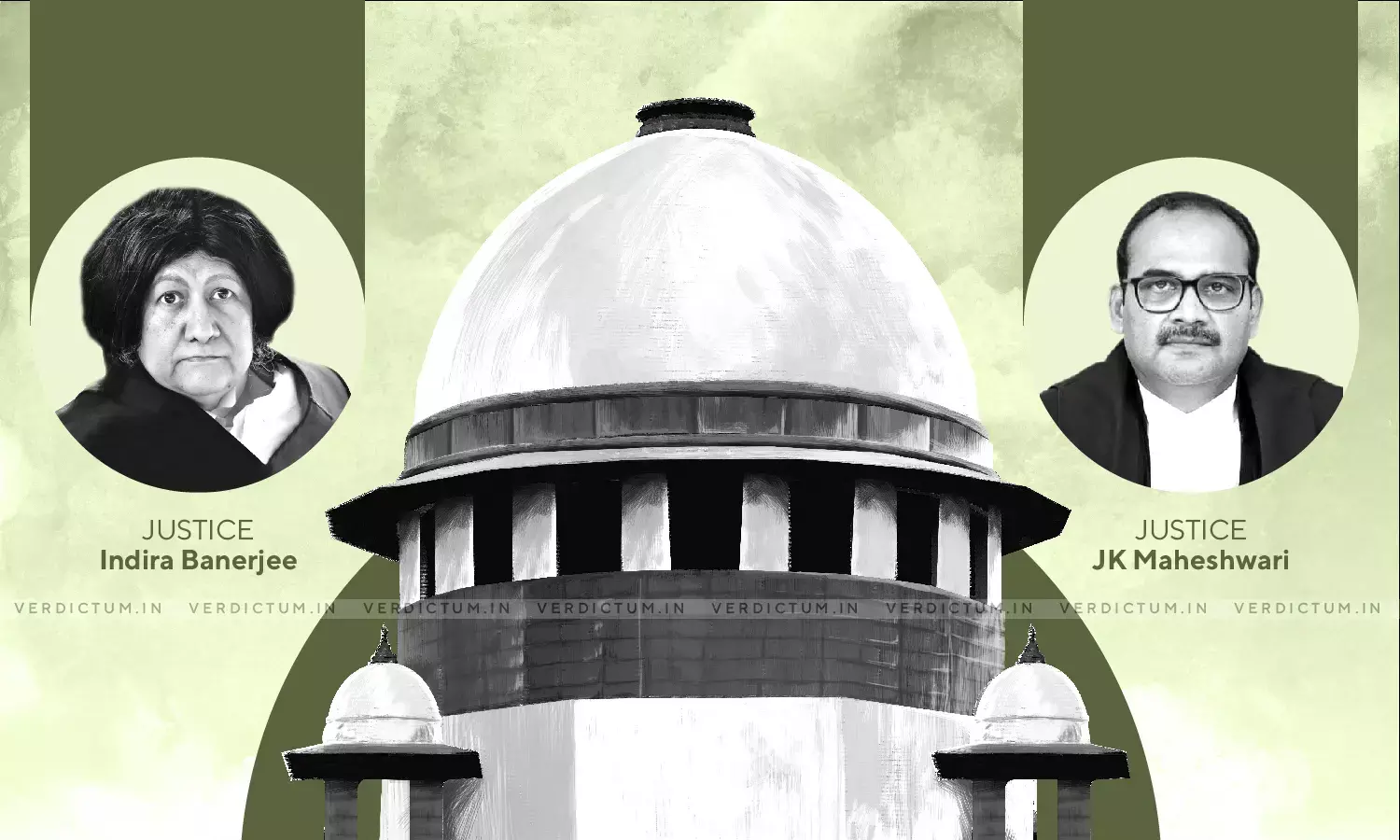Court Cannot Be Oblivious To Economy Or Need To Protect Livelihood If Project Complies With Environmental Norms: SC
A Division Bench of the Supreme Court comprising of Justice Indira Banerjee and Justice J.K. Maheswari held in its Judgment of December 9, 2021, that "some relaxations and even grant of ex post facto Environmental Clearance [EC] in accordance with law, in strict compliance with Rules, Regulations Notifications and/or applicable orders, in appropriate cases, where the projects are in compliance with, or can be made to comply with environment norms, is in over [sic our] view not impermissible."
Appeals were instituted before the Apex Court as a Single Bench of High Court of Jharkhand had discontinued the operation of the interim orders, earlier passed by the High Court, which, in effect, allowed the appellant to operate its unit under the supervisory regulatory control of the Jharkhand State Pollution Control Board [Board]. The interim orders were in force for over two years.
The appellant owns and runs an integrated steel plant in Bokaro District in Jharkhand. The plant employs 3000 regular employees and 7000 contractual employees. The plant produced steel worth Rs. 4,200 crores in the FY 2019-2020.
CIRP had commenced against the appellant under IBC 2016. Vendanta Ltd. took over the appellant.
The Court noted that the Environment (Protection) Act, 1986 was enacted as a consequence of decisions taken at the UN conference on the Human Environment held in June 1972. The Court noted the powers of the Central Government under the 1986 Act to take measures for protecting and improving the quality of the environment.
The Centre has issued Environmental Impact Assessment Notification dated 27th January 1994 which provided that expansion or modernization of any activity under Schedule I of the notification shall not be undertaken in any part of India, unless it has been accorded Environmental Clearance (EC) by the Central Government in accordance with the procedure specified in the Notification.
The appellant had applied to MoEF&CC for grant of EC to establish the 3 MTPA integrated steel plant in Bokaro. The appellant was granted EC and thereafter Consent to Establish [CTE] which was extended from time to time. Even though CTE was granted to the Appellant to establish a steel plant at Mauza South Parbatpur of Chandankiyari Block of Bokaro District, the Appellant established a steel plant in Mauza Bhagabandh in the Chas Block in Bokaro District, 5.3 Kms away from the site for which EC and CTE had been granted. Cases were initiated against the officials of the appellant that were quashed by the Jharkhand High Court.
The Court relied upon the judgment in Indian Council for Enviro-Legal Action and Ors. v. Union of India and Ors. (1996) 3 SCC 212 wherein it was held that damages might be recovered under the 1986 Act to implement measures necessary or expedient in order to protect and promote the environment.
The Court noted that there was no doubt that the need to comply with requirements to obtain Environmental Clearance is non-negotiable.
The Court culled out the question for its consideration as follows.
"The question is whether an establishment contributing to the economy of the country and providing livelihood to hundreds of people should be closed down for the technical irregularity of shifting its site without prior environmental clearance, without opportunity to the establishment to regularize its operation by obtaining the requisite clearances and permissions, even though the establishment may not otherwise be violating pollution laws, or the pollution, if any, can conveniently and effectively be checked. The answer has to be in the negative."
The Court noted that the 1986 Act does not prohibit ex post facto EC. The Court noted that it cannot be oblivious to the economy or need to protect the livelihood of employees if such projects comply with environmental norms.
On the issue concerning ex post facto approval, the Court noted as follows:
"Where the adverse consequences of ex post facto approval outweigh the consequences of regularization of operation of an industry by grant of ex post facto approval and the industry or establishment concerned otherwise conforms to the requisite pollution norms, ex post facto approval should be given in accordance with law, in strict conformity with the applicable Rules, Regulations and/or Notifications. Ex post facto approval should not be withheld only as a penal measure. The deviant industry may be penalised by an imposition of heavy penalty on the principle of 'polluter pays' and the cost of restoration of environment may be recovered from it."
The Court came to the conclusion that the High Court had erred in passing the impugned order, via which, it had vacated the interim orders that were in vogue for over 2 years. The Court held that this was not in conformity with the principle of proportionality.
The Court also held that there was no violation of the Forest Act or the Forest Conservation Act. The Court noted that the application of the appellant for revised EC, CTO would be considered strictly in accordance with the environmental norms.
The appeals were allowed and the respondent No. 1 was directed to take a decision on the appellant's application for revised EC, as per law.
Click here to read/download the Judgment



